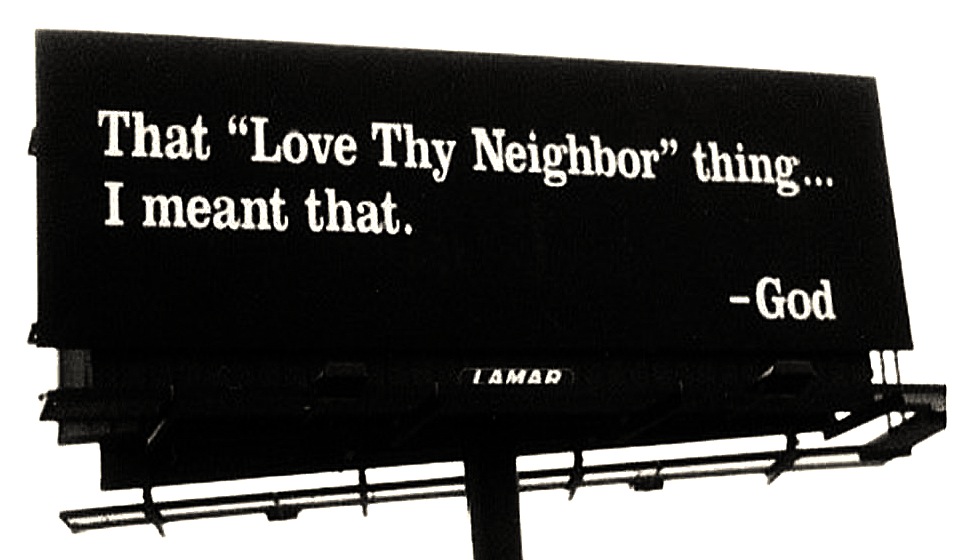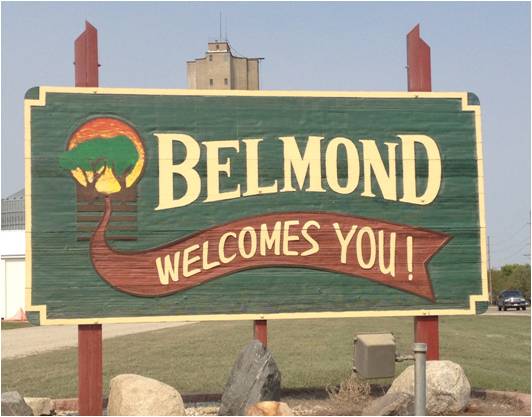Last week my husband, whom I affectionately call Zorro, and I were in a small town in Iowa for a wedding. When I say small, I really do mean small – by today’s standards anyway. I know a little about small towns because I was born in one in Southeast Missouri called Kinder. Of course Belmond, IA is a metropolis compared to Kinder, MO which had a population of about 10 if you counted everything that moved. In other words, when driving along if you saw the sign that read entering Kinder, you could turn around and see it read the same way on the other side. Perhaps these are slight exaggerations, but not much.
I love small towns. They have a certain charm. In Belmond the one theater still charges $1 for children and $2 for adults regardless of the time you go. Of course they only run one movie a week, but it’s always a first run film. Could they possibly make any money this way? I guess they do because they’ve gone digital. It helps to have the concession stand manned by volunteers who get free popcorn, soda, and entrance to the movie.
There is no Mc Donald’s or Starbucks, but the local coffee shop has a standard routine. The older farmers arrive around 6 a.m. to discuss the weather, crops, and politics, but they are gone by the time the ladies arrive to discuss the more important issues such as who’s having a child or grandchild, who’s getting divorced, or who moved into the old Randall house.
There’s a sense of community in a small town. They have community activities that the community actually attends. Whether they are raising money for the ambulance, fire department, or school band, people are supporting by baking or buying homemade goodies, purchasing raffle tickets, and volunteering to help.
While major league sports teams get some attention, the athletic focus is usually on the high school games. Where else but a small town would the local restaurant offer free chili after the game?
Neighbor helping neighbor is a way of life in a small town. Even helping a stranger is commonplace. For example when Zorro needed a little hair trim before the wedding he called the local salon. They said, “Come on in!” They quick trimmed him for free. Yes, I said free. Of course, he insisted he wanted to pay, but they wouldn’t hear of it.
Long before the sitcom Cheers coined the phrase, “You want to go where everyone knows your name” small towns had that covered. When Zorro was looking for that hair salon he map quested and ended up at the previous owner’s door. She steered him in the right direction. Then one day later we were strolling down Main Street for their Fall Festival. Vendors had tables outside their stores with merchandise for sale, local craftsmen offered their ware, and the local library on the corner had books to buy for the library fund. A lady greeted us. Zorro didn’t recognize her but she remembered him. It was the woman from the house he accidentally went to the previous day. She wanted to be sure Zorro had found what he needed. We had a wonderful chat.
Most everything charming about a small town revolves around community or “people connections.” Not only is it charming, but it’s also healthy! It used to be called the Roseto effect stemming from a study done in the 1960s on the inhabitants of a small town of Roseto, Pennsylvania. Although they had the same water, income levels, races, occupations, and diet as other communities, they had half the rate of heart attacks.
How could this be? Their lifestyles defied most health laws. Their jobs were labor intense. Their diet was high cholesterol. The men smoked unfiltered, stogie cigars. Although not drunkards, both sexes consumed wine in preference to soft drinks.
So what made the difference? The study concluded it was because they had strong family ties and community relationships. They took care of their own. There was no crime. There was no government assistance. There was no social stratum where the rich flaunted their wealth and the poor felt inferior.
Of course, as time passed future Roseto generations became less interdependent and less close, then consequently become less healthy. Perhaps there is really no way to escape inevitable health problems but staying connected with people can help slow that devastating process down.
Let’s face it, God created us to be relational. From the beginning God told us, “It is not good for man to be alone (Genesis 2:18).” The New Testament is full of scriptures about loving our neighbors (Matthew 22:36-40), and being kind and caring to one another (Philippians 2:4, Romans 12:10, etc.). This is not surprising considering that God lives in a community: Father, Son, and Spirit. He wants us to live in a community as well – a community with him and with others.
Somehow I think it’s easier to embrace this concept in a small town. Big city people guard their privacy to the point of shutting themselves off from the world, refusing to get to know neighbors or be neighborly. Since many are transient, they have little regard for community. After all, tomorrow they will probably be in a different community.
Life is a trade off. For every gain we think we make, we really lose a little something. Sure our metropolises may offer a variety of entertainment, chic shopping malls, upscale restaurants, and up to date fitness centers, but what have we traded for those luxuries?
We can learn a lot by visiting a small town. Let’s face it – not only do they have a certain charm, they could very well hold the secret to longer, healthier lives.


